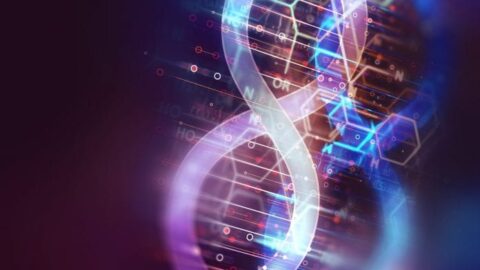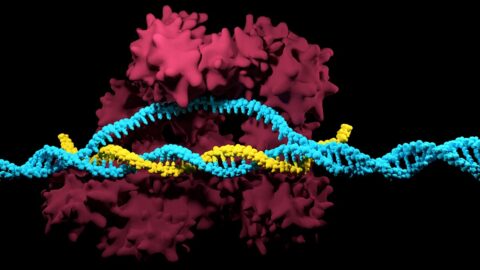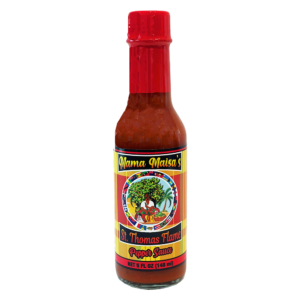Source: Ancestry.com takes DNA ownership rights from customers and their relatives
Author:
Don’t use the AncestryDNA testing service without actually reading the Ancestry.com Terms of Service and Privacy Policy. According to these legal contracts, you still own your DNA, but so does Ancestry.com.
The family history website Ancestry.com is selling a new DNA testing service called AncestryDNA. But the DNA and genetic data that Ancestry.com collects may be used against “you or a genetic relative.” According to its privacy policies, Ancestry.com takes ownership of your DNA forever. Your ownership of your DNA, on the other hand, is limited in years.
It seems obvious that customers agree to this arrangement, since all of them must “click here to agree” to these terms. But, how many people really read those contacts before clicking to agree? And how many relatives of Ancestry.com customers are also reading?
There are three significant provisions in the AncestryDNA Privacy Policy and Terms of Service to consider on behalf of yourself and your genetic relatives: (1) the perpetual, royalty-free, world-wide license to use your DNA; (2) the warning that DNA information may be used against “you or a genetic relative”; (3) your waiver of legal rights.
1. Perpetual, royalty-free, worldwide license to use your DNA
AncestryDNA, a service of Ancestry.com, owns the “World’s Largest Consumer DNA Database” that contains the DNA of more than 3 million people. The AncestryDNA service promises to, “uncover your ethnic mix, discover distant relatives, and find new details about your unique family history with a simple DNA test.”
For the price of $99 dollars and a small saliva sample, AncestryDNA customers get an analysis of their genetic ethnicity and a list of potential relatives identified by genetic matching. Ancestry.com, on the other hand, gets free ownership of your genetic information forever. Technically, Ancestry.com will own your DNA even after you’re dead.
Specifically, by submitting DNA to AncestryDNA, you agree to “grant AncestryDNA and the Ancestry Group Companies a perpetual, royalty-free, world-wide, transferable license to use your DNA, and any DNA you submit for any person from whom you obtained legal authorization as described in this Agreement, and to use, host, sublicense and distribute the resulting analysis to the extent and in the form or context we deem appropriate on or through any media or medium and with any technology or devices now known or hereafter developed or discovered.”
Basically, Ancestry.com gets to use or distribute your DNA for any research or commercial purpose it decides and doesn’t have to pay you, or your heirs, a dime. Furthermore, Ancestry.com takes this royalty-free license in perpetuity (for all time) and can distribute the results of your DNA tests anywhere in the world and with any technology that exists, or will ever be invented. With this single contractual provision, customers are granting Ancestry.com the broadest possible rights to own and exploit their genetic information.
The AncestryDNA terms also requires customers to confirm that, “You understand that by providing any DNA to us, you acquire no rights in any research or commercial products that may be developed by AncestryDNA that may relate to or otherwise embody your DNA.” Essentially, you still own your DNA, but so does Ancestry.com. And, you can commercialize your own DNA for money, but Ancestry.com is also allowed to monetize your DNA for millions of dollars and doesn’t have to compensate you.
Although AncestryDNA customers provide voluntary consent to have their DNA used in commercial research projects, customers are free to withdraw consent, with a few exceptions. First, “data cannot be withdrawn from research already in progress or completed, or from published results and findings.” In those cases, Ancestry.com has access to data about you indefinitely.
Secondly, if a customer withdraws their consent, Ancestry.com will take 30 days to cease using their data for research. Finally, withdrawing consent, “will not result in destruction of your DNA Sample or deletion of your Data from AncestryDNA products and services, unless you direct us otherwise.” Customers must jump through additional hoops if they want their DNA sample destroyed or their data deleted from AncestryDNA products and services. The Ancestry.com policy does not specify what “additional steps” are required. U.S. customers must contact Ancestry.com customer service at 1–800–958–9124 to find out. (Customers outside the United States must call separate customer service numbers.)
2. Warning that DNA information may be used against “you or a genetic relative”
The Ancestry.com DNA testing service promises to analyze approximately 700,000 genetic markers. According to Ancestry.com, the service, “combines advanced DNA science with the world’s largest online family history resource to predict your genetic ethnicity and help you find new family connections.” The results of an AncestryDNA analysis include information about “ethnicity across 26 regions/ethnicities and identifies potential relatives through DNA matching to others who have taken the AncestryDNA test.”
AncestryDNA claims to use the “latest autosomal testing technology” to produce genetic identity reports and can combine the test results with “the world’s largest online family history resource to predict your genetic ethnicity and help you find new family connections.” In addition, AncestryDNA offers a genetic code profiling and matching service, advertising that “AncestryDNA can also help identify relationships with unknown relatives through a dynamic list of DNA matches.”
This raises a thorny issue that Ancestry.com has not resolved: your exact DNA profile is unique to you, but a substantial portion of your DNA is identical to your relatives. Thus, Ancestry.com is able to take DNA from its customers and also their relatives. Even if you’ve never used Ancestry.com, but one of your genetic relatives has, the company may already own identifiable portions of your DNA.
The personal “Genetic Data” collected by Ancestry.com includes “information derived from processing your DNA Sample through genomic, molecular, and computational analyses using various technologies, such as genotyping and whole or partial genome sequencing. Genetic Data is broader than just the results delivered to you when you use the AncestryDNA test and includes a range of DNA markers such as those associated with your health or other conditions.” In short, Ancestry.com holds genetic data that reveals your health and other conditions.
Genetic diseases are disorders caused by abnormalities in a person’s DNA and are divided into three categories: single-gene disorders, such as cystic fibrosis, sickle cell disease, and Huntington’s disease, result from the mutation of the protein of a single gene; chromosome abnormalities, such as Down Syndrome, are caused by disorders of the whole chromosome; and multifactorial disorders, including breast cancer and Alzheimer’s disease, develop from mutations in multiple genes, often coupled with environmental causes. Genomics play a role in nine out of the top ten leading causes of death in the U.S., including cancer, heart disease, stroke, chronic lower respiratory diseases, diabetes, Alzheimer’s, influenza and pneumonia, septicemia, and kidney disease.
Buried in the “Informed Consent” section, which is incorporated into the Terms of Service, Ancestry.com warns customers, “it is possible that information about you or a genetic relative could be revealed, such as that you or a relative are carriers of a particular disease. That information could be used by insurers to deny you insurance coverage, by law enforcement agencies to identify you or your relatives, and in some places, the data could be used by employers to deny employment.”
This is a massive red flag. The data “you or a genetic relative” give to AncestryDNA could be used against “you or a genetic relative” by employers, insurers, and law enforcement.
For example, a young woman named Theresa Morelli applied for individual disability insurance, consented to release of her medical records through the Medical Information Bureau (a credit reporting agency for medical history), and was approved for coverage. One month later, Morelli’s coverage was cancelled and premiums refunded when the insurer learned her father had Huntington’s disease, a genetic illness.
Startlingly, the Medical Information Bureau (MIB) used Morelli’s broad consent to query her father’s physician, a doctor with whom she had no prior patient relationship. More importantly, the applicant herself wasn’t diagnosed with Huntington’s carrier status, but she suffered exclusion on the basis of a genetic predisposition in her family.
Under a 1995 consent agreement with the Federal Trade Commission, the MIB and its members are required to comply with consumer protections of the Fair Credit Reporting Act. Much like financial credit reports, all consumers are entitled to a free annual copy of their “medical report” file from the Medical Information Bureau (MIB). If the consumer discovers an error in her MIB medical credit report file, she must mail a letter to the MIB to begin the dispute process.
Federal laws, including the Health Insurance Portability and Accountability Act of 1996 (HIPAA) and the Genetic Information Non-Discrimination Act of 2008 (GINA), contain protections that prohibit health insurers from requiring, using, and analyzing genetic information in health care coverage decisions. However, both laws contain glaring exceptions that allow for genetic discrimination in certain industries. Notably, no federal laws regulate the use of genetic information, genetic testing, and genetic discrimination for life insurance companies, long-term care insurers, and employers.
An Ancestry.com DNA test is the impetus of a federal civil rights lawsuit filed by Sergeant Cleon Brown, a white police officer in Hastings, Michigan against his employer, the Hastings Police Department, and several city employees. Curious about his own family history, Brown purchased an AncestryDNA genetic test and analysis report.
The results surprised him — Ancestry.com said his DNA was 18 percent sub-Saharan African. Brown “proudly told his colleagues at the police department” about his African ancestry.
But not long after that, “his elation turned into misery.” According to Sergeant Brown’s complaint, his colleagues at the police department, “started whispering ‘Black Lives Matter’ while pumping their fists as they walked” past Brown.
The complaint also alleges that the former mayor of Hastings participated in the racist teasing, by telling Brown a joke containing racist slurs. “I just never thought it would be in Hastings, saying, like, racist comments to me,” Brown said to the New York Times. In his lawsuit, Brown, a military veteran who has worked in law enforcement for 20 years, is seeking $500,000 in damages.
The Ancestry.com Terms of Service also warns that genetic information in its possession can be used by state or federal law enforcement agencies “to identify you or your relatives.” With the rise of forensic evidence in criminal investigations, DNA is often considered incontrovertible evidence. To propel the use of DNA evidence in criminal investigations and prosecutions, the Federal Bureau of Investigation (FBI) operates the national Combined DNA Index System (CODIS) database.
The CODIS DNA database, created and maintained by the FBI, consists of the following three levels of information: local DNA Index Systems (LDIS) where DNA profiles originate; state DNA Index Systems (SDIS) which allows for laboratories within states to share information; and the National DNA Index System (NDIS) which allows states to compare DNA information with one another. According to reports, the FBI’s CODIS software connects disparate databases including, arrestees, missing persons, convicted offenders, and forensic samples collected from crime scenes.
All 50 states, the District of Columbia, federal law enforcement, the Army Laboratory, and Puerto Rico participate in national sharing of DNA profiles through the CODIS system. However, the FBI DNA database is not infallible. In 2015, the FBI said it discovered flawed data after it commissioned a study to retest DNA samples. In a bulletin sent to crime labs across the United States, the FBI surmised that DNA data errors were probably due to “clerical mistakes in transcriptions of the genotypes and to limitations of the old technology and software.” The FBI suspects that errors in DNA may go back as far as 1999.
3. Waiver of legal rights
Are “you or a genetic relative” a customer of AncestryDNA? If so, Ancestry.com now has control over the DNA of “you or a genetic relative.” Should the warnings from Ancestry.com come to pass, and DNA information about “you or a genetic relative” is used against “you or a genetic relative” by any employer, insurer, or law enforcement, then “you or a genetic relative” have very limited legal rights.
In its sales contract, Ancestry.com takes no responsibility. By consenting to the AncestryDNA Terms and Conditions, “you or a genetic relative” agree to hold the company harmless for any damages that AncestryDNA may cause unintentionally or purposefully. If “you or a genetic relative” are “dissatisfied with any portion of the Websites or the Services, or with any clause of these terms, as your sole and exclusive remedy you may discontinue using the Websites and the Services.” The only option for unhappy customers is to stop using AncestryDNA.
In the event you or your genetic information cause harm, you agree to “defend, indemnify and hold harmless AncestryDNA, its affiliates, officers, directors, employees and agents from and against any and all claims, damages, obligations, losses, liabilities, costs or expenses (including but not limited to attorney’s fees).” And customers beware, “you may be liable to others as well as to us if your account is used in violation of the terms and conditions of this Agreement.” That means you could end up owing money to Ancestry.com, its attorneys, and others.
The final indignity for Ancestry.com customers is that they must waive fundamental legal rights by agreeing to mandatory binding arbitration. With the exception of intellectual property rights disputes and certain small claims, Ancestry.com customers must pursue their disputes through arbitration, rather than court. In arbitration, the established legal rules of discovery, evidence, and trial by jury do not exist.
Finally, if many AncestryDNA customers want to join together to file a lawsuit against Ancestry.com, they are prohibited. But in fairness, Ancestry.com similarly prohibits itself from joining with a bunch of others to file a class action lawsuit against you. By agreeing to the Terms and Conditions, “you and AncestryDNA agree that each may bring claims against the other only in your or its individual capacity, and not as a plaintiff or class member in any purported class, consolidated, or representative action.”
These arbitration provisions survive even if you cancel your AncestryDNA account. However, for good measure, Ancestry.com notes that, “this arbitration agreement does not preclude you from bringing issues to the attention of federal, state, or local agencies. Such agencies can, if the law allows, seek relief against us on your behalf.”
4. Conclusion
To use the AncestryDNA service, customers must consent to the Ancestry.com Privacy Policy and Terms of Service. These are binding legal contracts between the customer and Ancestry.com. The most egregious of these terms gives Ancestry.com a free license to exploit your DNA for the rest of time.
Customers must understand that turning over their DNA means a loss of complete ownership and control. Ancestry.com customers should also know they’re giving up the genetic privacy of themselves and their relatives.
Before purchasing, individuals are advised to fully read and consider the Ancestry.com Terms of Service and Privacy Policy. If you become a customer, Ancestry.com owns your DNA for life and longer.
Editor’s Note: After the publication of this piece, Ancestry.com released a statement and made some changes to its Terms and Conditions. The organization has not responded to multiple requests for clarification from the author of this piece, and there are still remaining concerns about customers’ privacy.






















